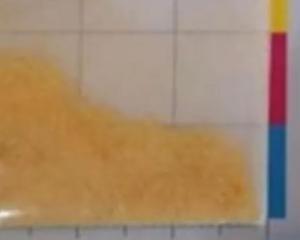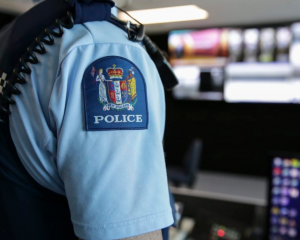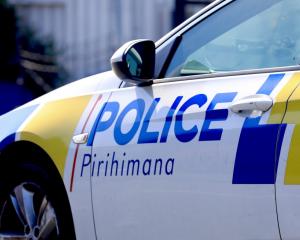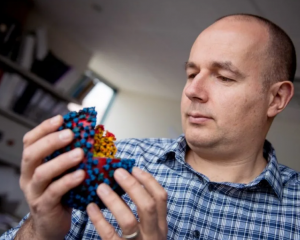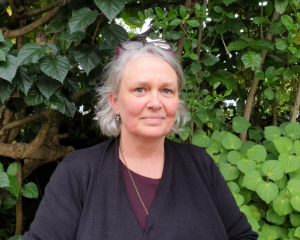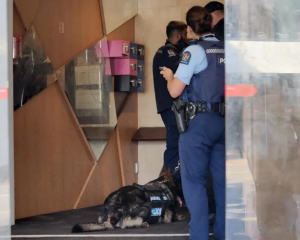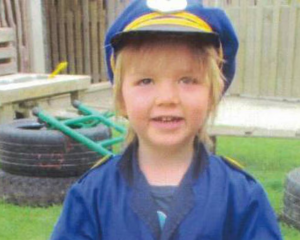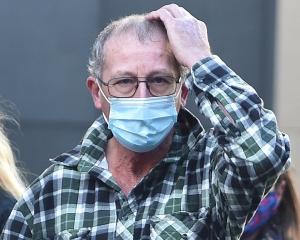Melino Maka hardly got any sleep overnight and has been trying "every few minutes" to reach friends and loved ones in Tonga.
Maka, who is chair of the Tonga Advisory Council in Auckland, says he feels "powerless, helpless" after tsunami waves swamped his home island nation on Saturday evening following a volcanic eruption.
He is one of many thousands trying to reach loved ones and friends, but main communication lines remain down on Sunday.
Waves struck about 6pm on Saturday (NZ time) and followed several eruptions of Hunga-Tonga-Hunga-Ha'apai, located about 30km south-east of Fonuafo'ou island.
The eruptions had been noted the preceding day, then the final eruption sent steam, ash and gas 20km into the air and could be felt as far as Fiji.
Tsunami wave activity is being reported through the wider Pacific region, including as far north as Russia and Alaska and Japan, as well as Hawaii, east to Rapanui and the coasts of Panama and Chile.
New Zealand Prime Minister Jacinda Ardern said today that images of the volcanic eruption were "hugely concerning" and agencies were still trying to establish full communications with the Pacific island kingdom.
Communications in all of Tonga have been cut off as a result of Saturday's eruption, making any assessment difficult, Ardern said, but the Defence Force and Foreign Ministry were working to establish what's needed and how New Zealand can help.
University of Otago geologist Marco Brenna estimated that Tonga's main island, Tongatapu, will be blanketed with a few millimetres to a few centimetres of ash on Sunday and the eruption was a one-in-1000-year event.
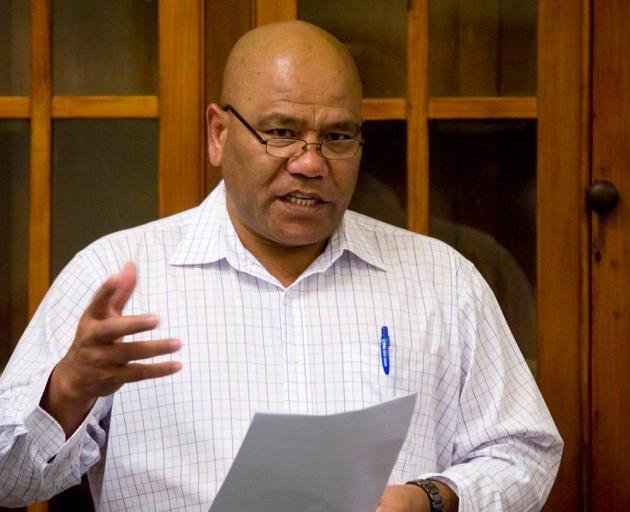
Tsunami waves were observed in Tonga's capital Nuku'alofa and the capital of American Samoa, a US-based tsunami monitor said, following the eruption.
New Zealand has issued a tsunami alert for the north and east coast of the North Island, the South Island's west coast and the Chatham Islands.
Maka said he had written to the new Tongan Prime Minister asking for directions on what to do next. The Tongan Government has yet to ask New Zealand for help.
"Many in the community have called me to ask what they can do to reach their families, they are worried just as I am, but I feel powerless and helpless because there's just nothing I can do," he said.
He had heard from the community that areas such as Patangata, Sopu, Popua and Fangaloto are underwater.
"So the footage that we are seeing are just the surface of how bad the situation is because people have not been able to send through videos or pictures now that much of the communication networks are still down," Maka said.
Social media footage that has been shared shows people fleeing in the dark.
"The biggest worry for most of us here is not knowing what happened to our families, and this again shows the vulnerability of Pacific Island nations when natural disaster strikes," Maka said.
"We are just getting really desperate for information."
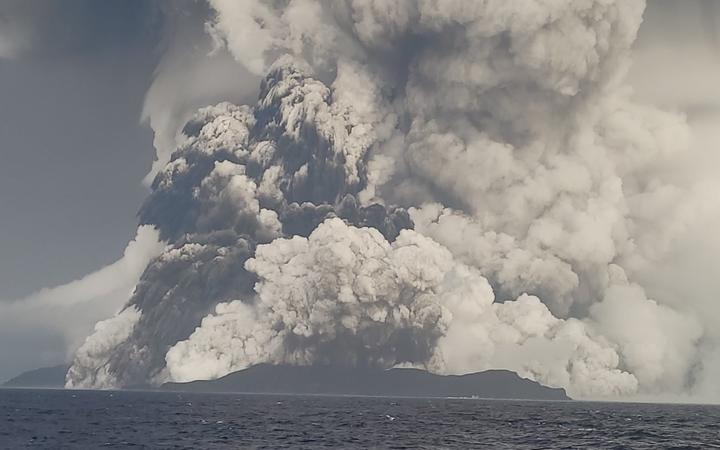
One-in-1000-year event: volcanologist
Scientists are predicting that Tonga's main island, Tongatapu, could be blanketed in ash on Sunday.
An Auckland University volcanologist, Shane Cronin, said the magma type erupted by Hunga-Tonga-Hunga-Ha'apai is called an 'intermediate composition' - similar to what comes from New Zealand's Ruapehu volcano.
It was not especially rich in volatiles such as sulphur or fluorine, and as a result, this volcanic ash was not especially toxic.
However, he said, all volcanic ash could produce acid rain. "Help will be needed to restore drinking water supplies."
Otago University geologist Marco Brenna estimated that Tonga's main island, Tongatapu, will be blanketed with a few millimetres to a few centimetres of ash today and the eruption was a one-in-1000-year event.
Radiocarbon dating suggested one major eruption of this scale occurred about AD1100 and another in AD200, he said.
"This, along with other data from the volcanic ash records, suggests a recurrence interval of 900 to 1000 years for very large eruptions at the volcano.
"The current eruption seems to be one of these large events which fits with the timing since the last of these in [circa] AD1100."
Kiwis in Tonga
The Ministry of Foreign Affairs and Trade said all New Zealanders in Tonga are advised to register their details on safetravel.govt.nz.
On Sunday, it said there were no official reports of deaths or injuries in Tonga and there were 30 New Zealanders registered as being in Tonga.
"If you are in the affected area or areas potentially affected by a tsunami you should follow the advice of the local authorities, including any tsunami evacuation orders. Please also keep your family back in New Zealand informed of your wellbeing.
"We also recommend that you stay informed of developments by monitoring local media. If you require consular assistance please contact the New Zealand High Commission in Nuku'alofa on +676 23122 or for consular emergencies +64 99 20 20 20."
New Zealand's High Commission in Nuku'alofa is in contact with local authorities and said damage assessments were under way.
A New Zealand Defence Force P3 Orion is on standby to fly over the area once atmospheric conditions allow.
- NZ Herald, RNZ and Reuters



